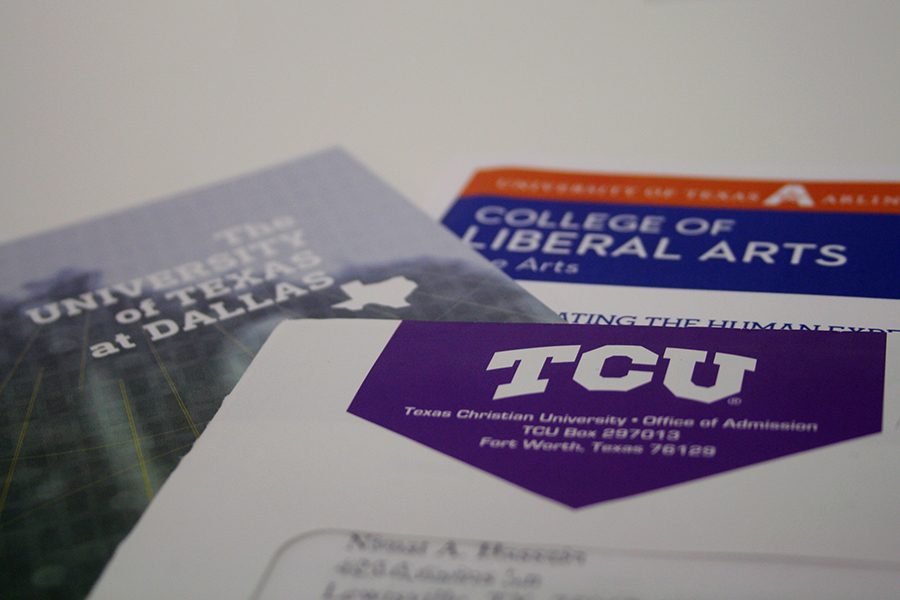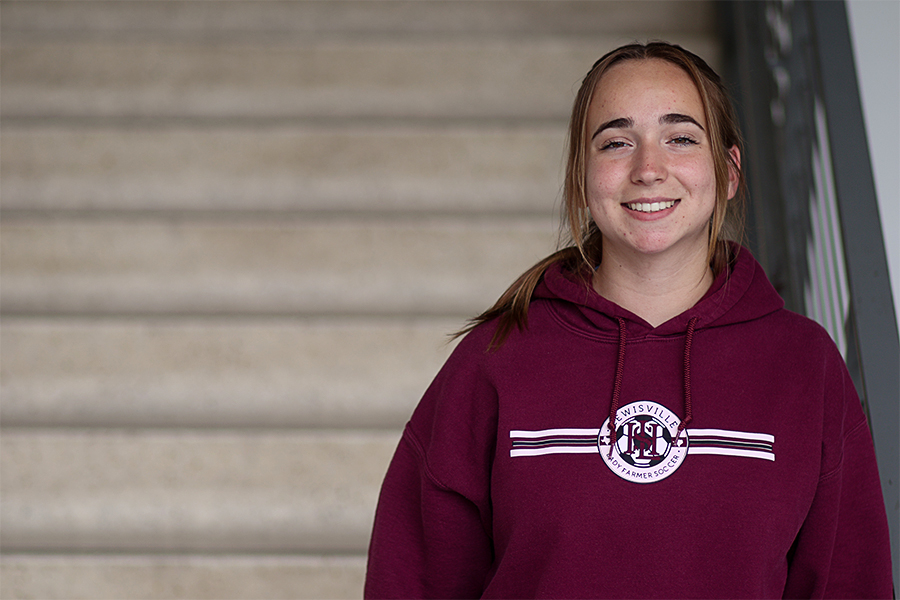The class of 2017 will be the last class to graduate under the “4 by 4 plan,” more formally known as the “Recommended High School Program” or the “Distinguished Achievement Program” for students who have taken advanced classes and three language credits.
This year’s junior class is the first at Main to be under the newer plan. The plan, implemented by the Texas Education Agency, greatly contrasts the 4 by 4 plan and provides more options intended to be an asset to high school students.
Texas students who enter high school from 2014 and forward will graduate under the “Foundation High School Program.” This new plan requires only 22 credits compared to the Distinguished or Recommended High School Program, which each require 26. It also includes endorsements, which are different course plans dedicated to what students may want to study after high school.
“There are five types of endorsements: arts and humanities, business and industry, multidisciplinary, public services, STEM, and there is the option to have none at all,” lead counselor Maria Ortiz said.
Endorsements are much like college fields of study. One of the main purposes of endorsements is to help high school students focus on possible careers earlier. By requiring certain classes and electives with each endorsement, it provides a stronger base for whatever careers students may later choose.
“A student who wants to be a nurse would choose the public services endorsement and a band student would most likely choose the arts and humanities endorsement and for students that are not quite sure yet, the multidisciplinary endorsement gives flexibility,” Ortiz said.
The multidisciplinary path requires four credits from the foundation subjects, English, math, social studies and science. The student can also choose to have four credits in AP or dual credit courses out of the core high school subjects, languages or the fine arts. Another option for the student is to take four advanced courses that prepare them to enter the workforce or education after high school within one endorsement or among several endorsement areas.
“And although there is a none option, it won’t allow admission to most colleges in Texas,” Ortiz said.
If the student chooses to have no endorsement at all, the future for that student’s education is unforeseen, a hit or miss. Although the student will be able to graduate high school, certain colleges pay attention to the endorsements students choose.
Texas A&M states on its website, “For students entering ninth grade beginning 2014-15 the new foundation curriculum plan with at least one endorsement will be required for admission consideration.”
Not having an endorsement also prevents students from taking classes that could be required in college such as biology, chemistry or physics. However, this is not the only way endorsements can hurt students.
“Endorsements can be restricting as well,” Ortiz said. “By choosing a certain endorsement, it can keep the student from trying new things.”
There is the option to change endorsements; however, the process of changing one’s schedule piles on additional stress than what already comes with high school.
“Endorsements are also difficult for scheduling purposes,” Ortiz said. “It limits us from being able to see in the future and plan accordingly.”
Implementing endorsements varies with each school district, with smaller districts possibly not having all five endorsements. Despite the possible scheduling issues and variations of implementation, the new plan provides numerous benefits for high school students.
“Endorsements help kids focus early on careers and gives them a better background,” Ortiz said. “ It allows them to have experience and excel in college.”


!["I hope to become fond [of] and understand the new dynamic of a life where I don't really have boundaries set by another person, but rather more of a liberal freedom."](https://farhar.net/wp-content/uploads/2025/05/topten9.jpg)




!["Learning is a really important aspect of high school – that's why we're here. I think the whole top ten thing can also encourage somebody [to] focus on grades and not the actual learning."](https://farhar.net/wp-content/uploads/2025/05/topten6.jpg)







